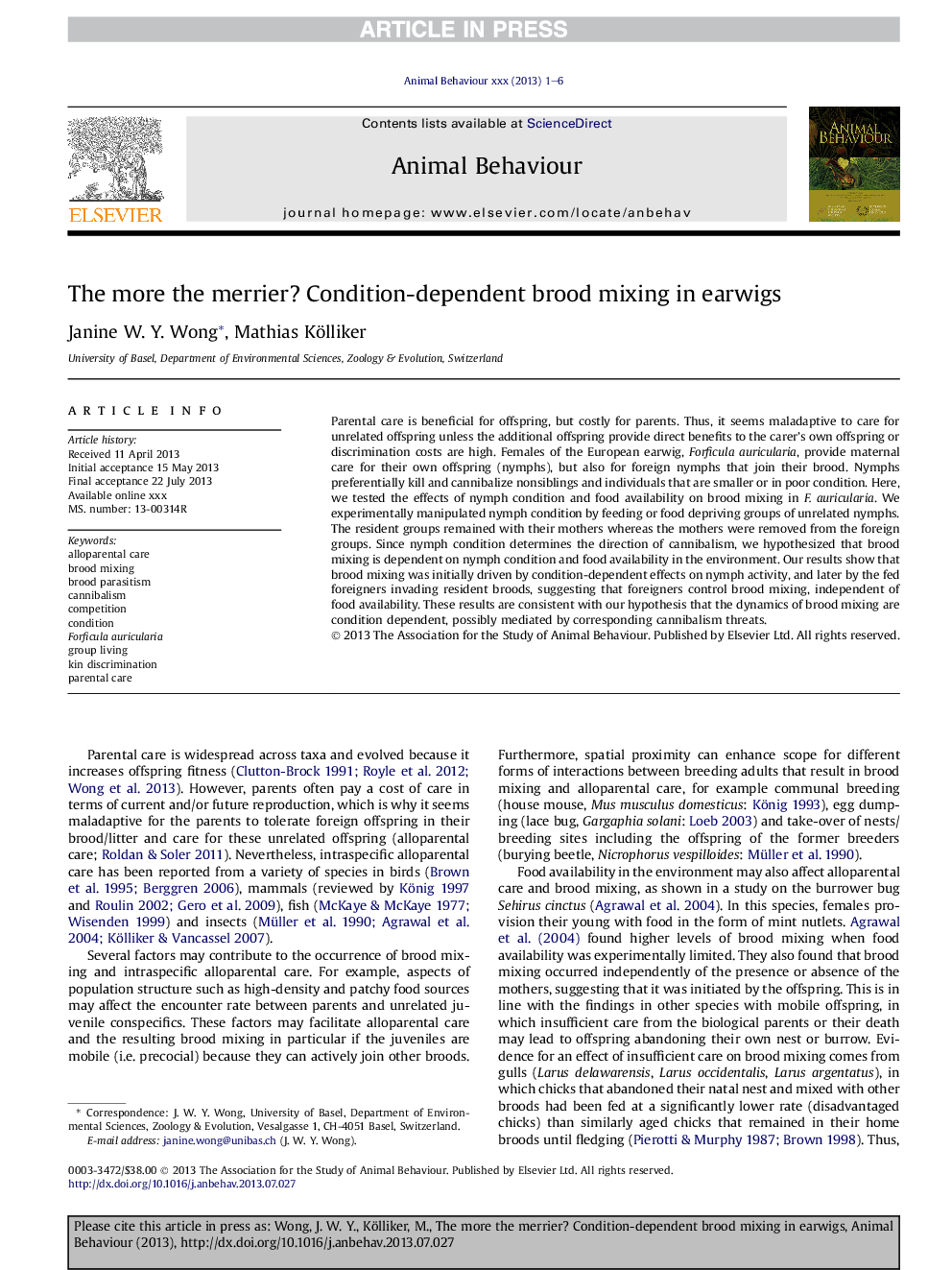| Article ID | Journal | Published Year | Pages | File Type |
|---|---|---|---|---|
| 10970740 | Animal Behaviour | 2013 | 6 Pages |
Abstract
Parental care is beneficial for offspring, but costly for parents. Thus, it seems maladaptive to care for unrelated offspring unless the additional offspring provide direct benefits to the carer's own offspring or discrimination costs are high. Females of the European earwig, Forficula auricularia, provide maternal care for their own offspring (nymphs), but also for foreign nymphs that join their brood. Nymphs preferentially kill and cannibalize nonsiblings and individuals that are smaller or in poor condition. Here, we tested the effects of nymph condition and food availability on brood mixing in F. auricularia. We experimentally manipulated nymph condition by feeding or food depriving groups of unrelated nymphs. The resident groups remained with their mothers whereas the mothers were removed from the foreign groups. Since nymph condition determines the direction of cannibalism, we hypothesized that brood mixing is dependent on nymph condition and food availability in the environment. Our results show that brood mixing was initially driven by condition-dependent effects on nymph activity, and later by the fed foreigners invading resident broods, suggesting that foreigners control brood mixing, independent of food availability. These results are consistent with our hypothesis that the dynamics of brood mixing are condition dependent, possibly mediated by corresponding cannibalism threats.
Keywords
Related Topics
Life Sciences
Agricultural and Biological Sciences
Animal Science and Zoology
Authors
Janine W.Y. Wong, Mathias Kölliker,
